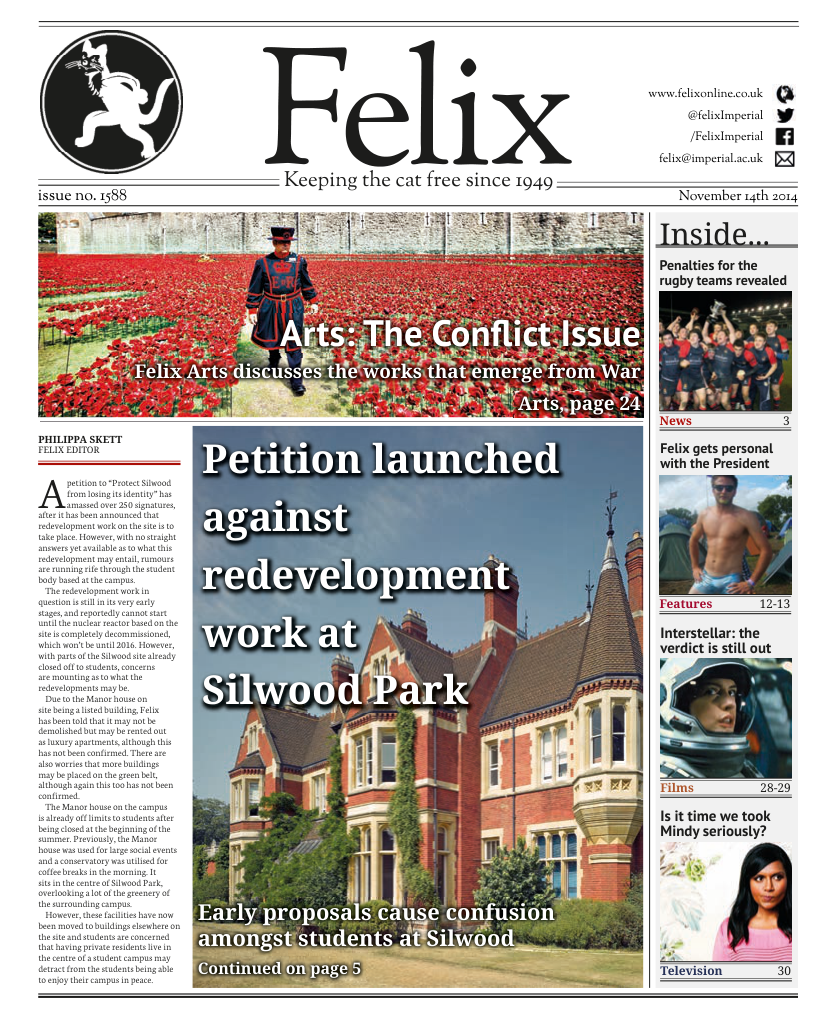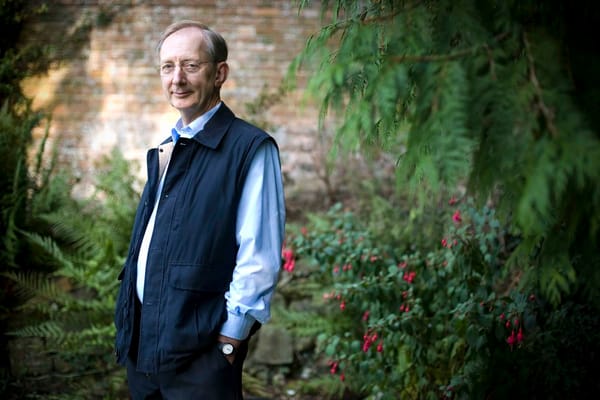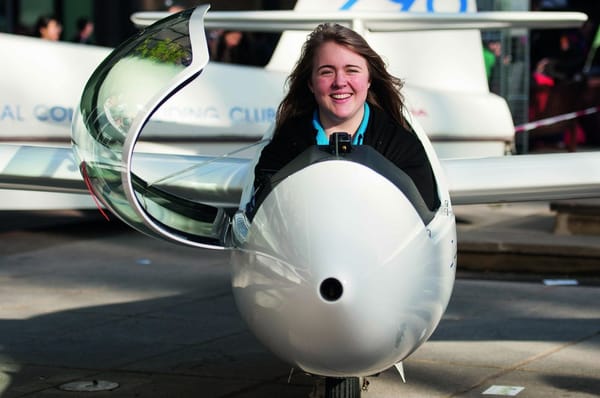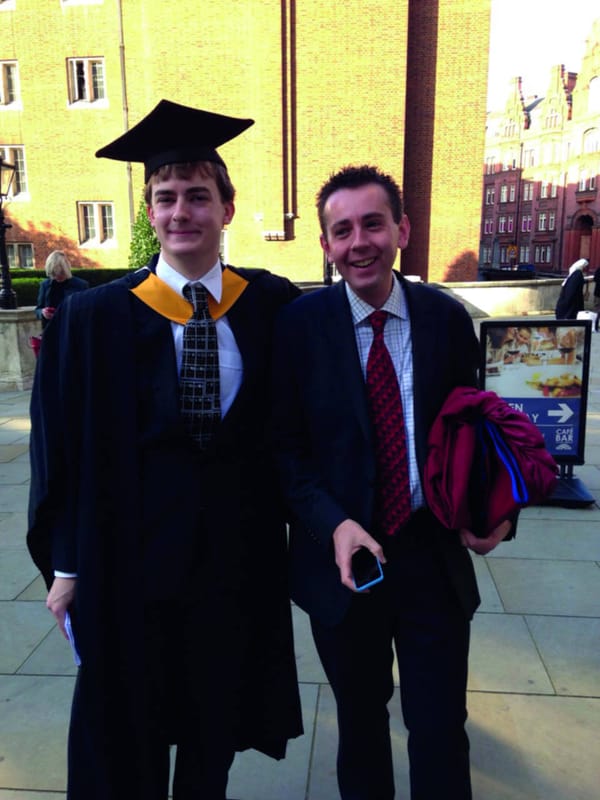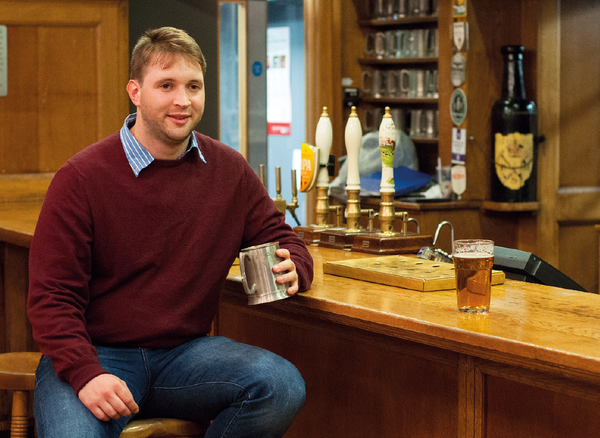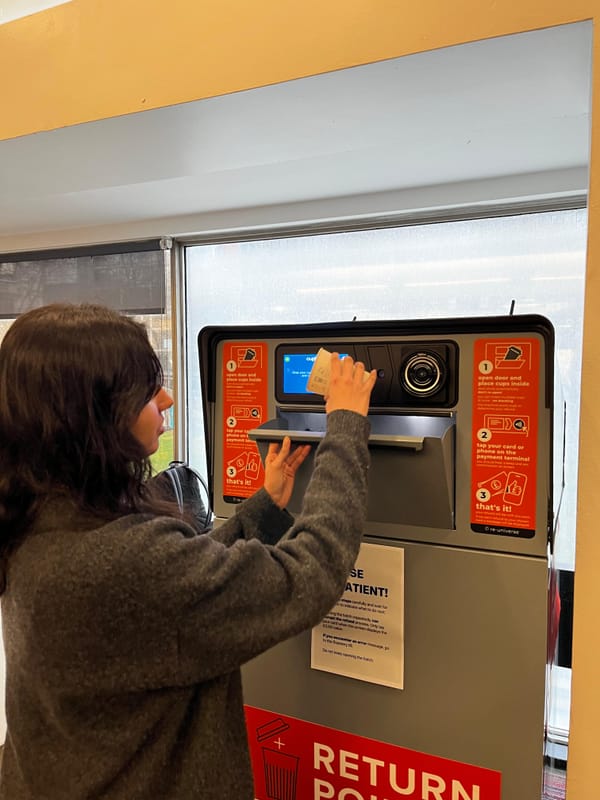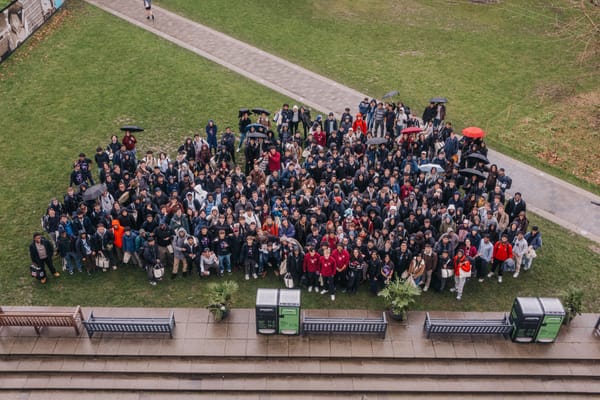What would Wheeler do?
In the final instalment of the Sabb interview series, Bernadett Tildy talks Tinder, “Lad Culture” and the Imperial Ratio
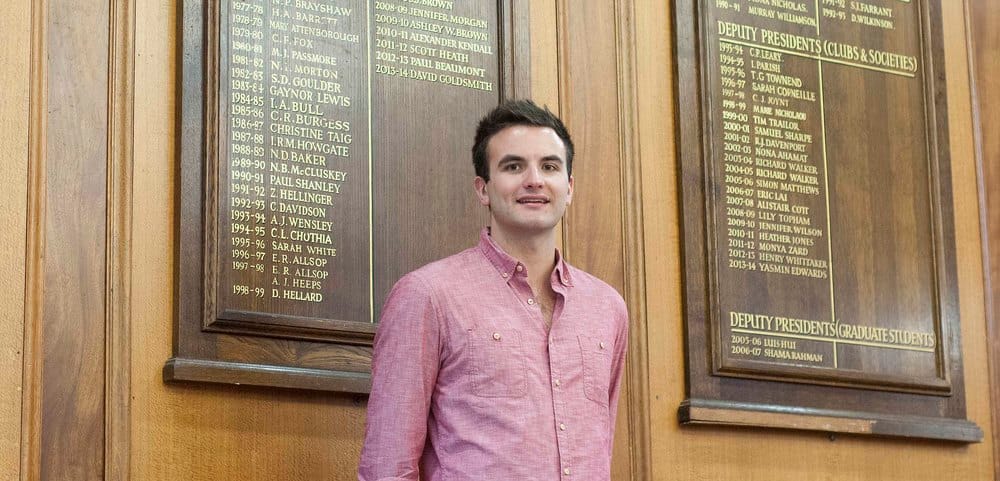
Bernadett: Where are you from and do you think it affected your outlook of Imperial?
Tom: In a very positive way, yes! I am from Salcombe in south Devon. The international population at Imperial has always been very stimulating for me. I went from a very un-diverse community to meeting people at Imperial who are from fascinating places.
B: How representative do you think this year’s sabb team is of the general student population of Imperial?
T: I’m excited we have a postgraduate research student, Alex, as an officer trustee, because we have a massive postgraduate population. We also have Philippa, the Felix editor, who was a taught postgrad student. In terms of the international aspect, we don’t have any non-EU students as sabbs. We are always looking to diversify, but we have no input into who runs and who is elected in the Union elections.
In terms of gender, although the 35:56 girl to boy ratio is not represented this year, it’s not massively far off, and this year is kind of an anomaly. The biggest concern is the lack of international students.
B: How do you think you’ll address this issue?
T: We’re trying to increase engagement. We do have a high level of engagement with our international students because a lot of them are members of overseas clubs. However, there is an issue because international students don’t tend to run for sabbatical positions.
This may be because their degree seems like more of an investment because of the higher fees, so they would prefer to do their degree then get a high-salary job straight away. I think it’s a shame; I’d like to see more international students run in the elections.
B: But do you not think because they are paying so much more, they would expect higher quality education and clubs and welfare?
T: I’d like to think that was a part of it, but the awareness of how much their degrees are costing is too much… But it’d be great if they had more input into how we could improve how their courses are run. I would like to help improve things for international students, but it is difficult, because I’m not an international student myself, I don’t have as thorough understanding as they do.
B: What do you think about the sabb salary? Especially after Chris said it was too high?
T: I have a lot of respect for Chris for donating a third of his salary. I couldn’t afford to do that myself because I’ve accumulated a lot of credit card bills throughout my three years at Imperial, because I couldn’t afford to live in London. So I’m paying those off now.
It’s also a combination of living in London and wanting to do as much as I can. If you look at what our salary works out to be, it works out to be in total mid to low £20,000, including living allowance. Whereas I think the average Imperial graduate salary is around £28,000, so sabbs are getting paid less than what we could expect to get.
I had a job offer from Deutsche Bank before I decided that I wanted to do this instead. I didn’t turn it down for money, but because I didn’t want to go into that industry and I wanted to do more and change here. I think I would have a better experience here.
B: So what do you want to do after your sabb year?
T: I’m going to hopefully go and do a postgraduate medicine degree.
B: Pff, woah! That is totally different to banking! Did you always want to run for a sabbatical position?
T: I was always very envious of the people who had the courage to run, to put themselves in a public forum so open to judgement and criticism. I didn’t think I had it in me.
Also, because I was in my final year with my friends, I didn’t think my friends would have enough time to help me. I was looking at the option of running for president and it was in the back of my head, but I thought I wouldn’t be able to take 2 weeks out of studying. I was concerned about my degree and putting too much pressure on my friends.
But when I did ask my friends, the support I got was absolutely overwhelming. Seeing my friends pull through like they did was one of the greatest things to happen to me during my time at Imperial.
I didn’t expect for a second that they would do anything like that for me. The good stuff that they did helping me impressed me so much; it almost outshone the fact that I won the election.
B: Why President?
T: It’s a weird one. I’m from a clubs background and I’d been asked if I considered running for DPCS. I think it was the fact that the things I wanted to achieve were not clubs based, but what I wanted to try and change was the wider relationship College has with students. College perceives students as customers and the transactional perception of how education is viewed upsets me; students are seeing education as a way to get a higher salary in the future. I think students should be more like members rather than customers and College should have to engage with the students more when making changes to the education they are providing. An example of this is moving Chemistry to Imperial West: where students were asked what they want and College is actually doing what they want.
B: But how can this aim even be achieved? I thought all you could do was put forward the student opinion?
T: The thing my predecessor, David, taught me (and what Paul taught him) was that things don’t get decided in meetings. Things get ‘approved’ in meetings, but things get formulated outside and that’s where influence comes in. As President I have the most amount of influence of the sabbs because I can have meetings with very high up people (like the President and Provost of the College) and hopefully influence people’s opinion on how they perceive students as an organisation, and ideas will then hopefully trickle down. I can agree that at the end of the year, there will be little perceived change. I know things won’t change overnight, I’m a realist like that, but I think there will be visible change in about five years’ time.
B: Do you think you can be held accountable at the end of this year?
T: I hope so. A couple of things I want to achieve are like that; long-standing changes in attitude, which aren’t quantifiable. But I also want to campaign around the time of general elections to change student engagement in politics. The student voter turnout is about 20% and the national turnout is 40% but the elderly turnout is 70%. The current attitude is: why should politicians listen to students when they get more votes from the elderly? I think we need to do something about that. I think we should have a lot more political weight. And since the election’s in May, hopefully I will be able to say more quantifiable things when it comes to accountability.
B: Do you think student body should be given a vote to decide the quality of job you’ve done?
T: We haven’t spoken about this as a sabb team yet since Chris brought this up. My individual opinion is that if we ask for a student referendum whether we get Honorary life membership at the end of the sabbatical year, students are more likely to pay attention to the negative things that the person has done and they are more likely to vote if they dislike the person.
I think the students who are voting, if they are interested and want to hold us to account, they should come to Student Council, which is the forum to hold us accountable. I don’t think a cross-campus ballot would be as representative of an informed opinion. Council is designed for the Sabbs to give a balanced report about what they’ve done and for their actions to be questioned by students. I do think the majority of people who would vote in the ballot would not go all the way to make an informed decision.
It’s quite a controversial thing to say, but I don’t think there would be that level of engagement. I know, because I’ve done a lot of surveys without having done enough research beforehand to be wholly informed about an issue.
B: Other than changing college attitudes, what other issues would you like to tackle?
T: The general election stuff I mentioned before, and the national movement on ‘lad culture’, which is a title I absolutely detest. It’s not representative of the issue and it is inherently gender specific. A lot of research indicates there are a lot of women participating in it too. ‘Lad culture’ is defined as ‘homophobic, and generally misogynistic and/or racist behaviour amongst groups who in general have been drinking and/or participating in a sport’.
Giving it a gender specific title is going to exacerbate the issue, both genders should be approached, saying ‘we need to stop this’. We are looking at branding it as a part of the solution, we are working on coming up with a new title for it.
Another issue I want to look at is Evelyn Gardens. They’re definitely closing next year for refurbishment, but then the following year, there might be some opportunity to push College to keep them open, because they still have a 30 year lease left. They are such an asset!
B: Will the rent increase though?
T: Absolutely, because College had to pay so much to refurbish them. But with Acton, by the time you’ve paid for a travel card, total cost is going to be the same as the refurbished Evelyn Gardens. But at least Evelyn Gardens is closer, quicker and nicer.
Tying in with this, another issue I want to look at is the affordable living cost. Currently Imperial can’t afford to give bursaries to the ‘middle income’ students, an issue that I am particularly concerned about. So we’re trying to collate some data; asking students how much their parents give them monthly, and where they are spending that money, so then we can better inform College about living costs.
B: In your role of President, who is accountable to you?
T: Our predecessors have changed the previous structure: I am now not in charge of the other sabbs, because they were elected for their separate reasons, and it’s less democratic. The Manager of the Union reports to me, technically.
B: So you’re like the ‘CEO of the Union’?
T: Yep.
B: Who trained you?
T: We get training throughout the induction period in the last two weeks of July. I also attended Students Union conferences, about how to run a student union. I also got a handover from David, and also have open dialogue with past presidents.
B: How do you think David did last year?
T: I think David did a very good job. I think the most impressive thing he produced was a consultation framework about how presidents should engage with students, it offers kinds of rules and framework on when they need to speak to students and how much, improving student consultation.
B: What is the thing you most like and dislike about the Union?
T: The thing I most like is that we’re so student-led. One of the downsides is that students sometimes get frustrated with certain aspects, like they don’t like queuing too long at the bars and they don’t like paying entry into the Union. Entry fees are a contentious issue, but it’s free til 9pm and it’s £2 after. But all of this money is re-invested to the Union, which goes towards the students.
B: If you had to have tinder, what bio would you have?
T: Oh God knows. I’d probably put what I like to do, so: skiing, climbing and that kind of thing. I’d probably put how tall I am, some girls get put off about how tall I am!
B: How tall are you?
T: no hesitation 6 foot 3. That really caught me unaware, I wonder what IS on my tinder profile…
B: Okay, say your tinder bio WAS actually amazing-
T: What ‘WAS amazing?!’, are you saying it’s crap?!
B: -and successfully earned you a date but because you are so busy with all your sabb duties, you don’t have time to leave campus, and have to have your first date at an Imperial establishment. Where do you go?
T: On campus?! Crippling! I’m technically a postgrad, half staff member, so probably h-bar.

